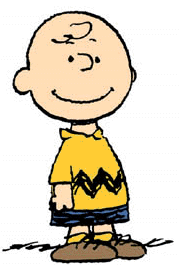 
 字體:小 中 大
字體:小 中 大 |
|
|
|
| 2006/03/08 09:02:41瀏覽358|回應3|推薦0 | |
The crash you heard late Sunday night was not only Jack Nicholson announcing the best-picture Oscar winner. It was the sound of lots of closet doors slamming shut in a huff. ''Brokeback Mountain," the so-called gay cowboy movie, lost to ''Crash," a drama about the shrieking, teary, hateful, and guilty people who refuse to stop running into each on the streets of Los Angeles. Some movies are born political, and others have politics thrust upon them. Poor ''Brokeback Mountain" was such a movie. Ang Lee's adaptation of Annie Proulx's short story was not out to attack us with a statement. It really is just an unhappy love story that happens to have enormous social relevance because its protagonists are two men. Yet the movie's biggest supporters may have turned an otherwise innocent film into a cause that got on voters' nerves. The dialogue became quotable, and the poster was mocked, lessening the emotional seriousness and making for a once-in-a-lifetime pop-culture phenomenon. ''Crash," which many Los Angelenos have come to regard as gospel, was the logical beneficiary. As Oscar host Jon Stewart pointed out, half of Hollywood acted in ''Crash," and actors make up the Academy's largest branch. Plus, the average age of voters is rumored to be 60-something, which means that ''Crash" might have triggered a civil-rights hot flash in the Academy. Despite the interlocking story lines, ''Crash" is in its way a conventional social-problem drama that also appealed to voters' sense of laziness. The movie is set in their backyard. And the depiction of nonstop racial strife might have tapped into some voters' guilt about their own wealth and their own prejudices. Sandra Bullock, as a pampered politician's wife, and Matt Dillon, as a racist LAPD officer, follow particularly improbable trajectories from bigotry to enlightenment: Each dares to hug a person of color. In the case of Bullock's character, it's her Latina maid, who exists solely for this grotesque expression of guilt. ''Crash" edges to the brink of insanity then assures you, ''If we can't all get along, the least we can do is try." Maybe the puppets in the Broadway musical ''Avenue Q" said it best when they sang, ''Everyone's a little bit racist sometimes." ''Crash" turns that declaration into volcanic melodrama. Oddly, the characters doing all the colliding in ''Crash" are straight. Director and co-writer Paul Haggis was sure to populate his movie Noah's Ark-style, with two or three members of various races, ethnicities, and social classes represented. Homosexuals didn't make the cut. Thus the win for ''Crash" makes an interesting point about where Hollywood stands on the whole gay issue -- less ''I wish I knew how to quit you" and more ''not that there's anything wrong with that." Throughout Oscar night, winners gave eloquent shout-outs to tolerance. George Clooney pointed out that Hattie McDaniel won her award at a time when it was dangerous and unfashionable to reward talented African-Americans. A truly bracing acceptance speech, though, would demand acceptance of openly gay actors instead of congratulating a breakthrough that goes back six decades. Yes, there might not be a Halle Berry without Hattie McDaniel. But suddenly it's more reasonable to wonder when we'll ever see a gay McDaniel. It's fine for Hollywood to urge gay tolerance. But it should give America an actual homosexual to tolerate first. The defeat of ''Brokeback" exposes this blind spot all too clearly. Best-director winner Ang Lee praised the fictional ''cowboys" in his movie for their bravery. But the real -- and truly audacious -- Truman Capote went unthanked in best actor winner Philip Seymour Hoffman's acceptance speech. The culture of the movie business isn't all that different from the military or sports. An accusation of homosexuality can turn a star litigious or, in some cases, relentlessly straight. Obviously, the movies are in the business of illusion. And anything that shatters the illusion is bad for business. As this year's Oscars demonstrated, Hollywood will find a way to produce or distribute ''Capote," ''Brokeback Mountain," and ''Transamerica," but fosters an environment in which the lead parts in those movies have to be played by ostensibly straight actors. There are no gay film stars. We all know the gay actors go to Broadway (they want Tonys!) or come from England. Seriously people, Ian McKellen can't do all your work for you. In any case, ''Brokeback Mountain" might not have been stridently political enough for Academy voters. The heroes never even say the word ''gay." ''Crash" throws all its issues up on the screen; of course it won. The Academy can congratulate itself from the bottom of its heart, while claiming to have searched its soul for solutions to decades of African-American neglect. Halle Berry, Denzel Washington, Jamie Foxx, Morgan Freeman, and now Three 6 Mafia are recent winners. There are lots of African-American stars and producers. Black is pretty normal in the movies. Homosexuality? Not so much. In an attempt to ''normalize" ''Brokeback Mountain" during Sunday night's broadcast Stewart trotted out a montage of great homoerotic moments in Westerns. It put the movie in an irreverent cinematic context, and it was very funny until you realized that, because the men in the montage aren't truly gay, all that clip reel actually does is reinforce paranoia about what seems gay. Just like the ''Brokeback" parodies sprouting all over the Internet, it was a backhanded compliment -- progressive, yet misleading, true but false, distancing and distorted. In the very same way that straight Stewart happily woke up in bed with straight Clooney during one of Sunday night's skits, it was more insidiously coy illusion. Smirking and winking pussyfoots around the issue. Waking up beside Harvey Fierstein and loving it -- that's pushing the envelope. Wesley Morris can be reached at wmorris@globe.com. |
|
| ( 休閒生活|影視戲劇 ) |









